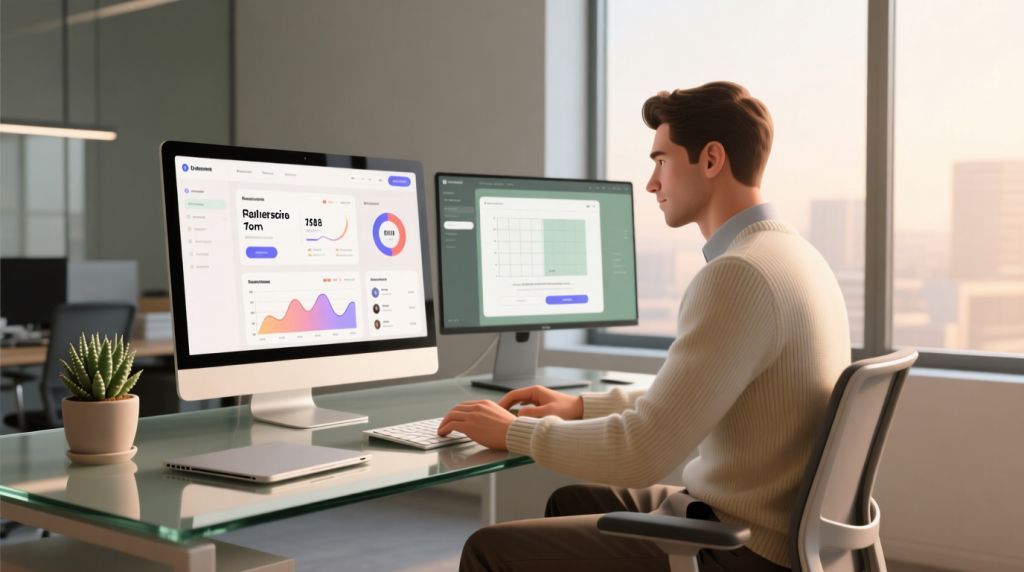Multi Commodity Exchange: Empowering India’s Markets for the General Public
Introduction
Imagine you’re at a massive bazaar, but instead of fruit and fabric stalls, you see digital booths trading everything from gold to cardamom. This digital “bazaar” is much like the Multi Commodity Exchange of India—a platform that connects buyers and sellers of diverse commodities. Just as you shop for the freshest produce, investors and traders hunt for the best prices for their commodities here.
Why does this matter to you? Whether you’re new to investing or simply curious about how global commodities reach your home, understanding the Multi Commodity Exchange can help you make smarter financial decisions. So, fasten your seatbelt as we take you through a compelling, easy-to-understand journey through the world of commodity trading in India.
Discover the multi commodity exchange of India, its role, and multi commodity exchange of India limited. Learn how to choose the best stock market course.
What is the Multi Commodity Exchange of India?
The Multi Commodity Exchange of India (MCX) is India’s largest commodity derivatives exchange. It’s a marketplace where buyers and sellers of commodities like gold, silver, crude oil, and agricultural products come together to trade contracts, much like you’d trade tickets for a concert, but on a bigger scale and with much higher stakes.
Brief History and Evolution
MCX was established in 2003 as the country’s first listed commodity exchange. Over the years, it has played a pivotal role in modernizing commodity trading and making it transparent and accessible. From humble beginnings, it has evolved into a tech-driven exchange that handles trades worth billions of rupees daily.
How Does a Commodity Exchange Work?
Think of MCX as a sophisticated online supermarket. Here, traders “buy” and “sell” contracts of commodities at prices determined by demand and supply. These contracts can be settled in cash (without needing actual delivery) or physically, depending on the agreement.
- Participants: Individual investors, big financial institutions, farmers, and exporters.
- Trading Mechanism: All trades are electronic, and the exchange acts as an unbiased platform ensuring fair play.
Major Commodities Traded in India
Not all commodities shine equally on MCX! Some of the most actively traded include:
- Precious metals: Gold and Silver
- Energy: Crude oil, Natural gas
- Base metals: Copper, Zinc, Lead
- Agricultural products: Cotton, Cardamom, Mentha oil
Everyday essentials to industrial must-haves are all traded here.
Multi Commodity Exchange of India Limited (MCX): The Powerhouse
When people mention “multi commodity exchange of india limited,” they’re specifically referring to MCX. It is overseen by the Securities and Exchange Board of India (SEBI) and remains the country’s premier exchange for commodity futures contracts.
- Market Share: MCX dominates the commodity derivatives landscape with the highest volumes.
- Innovations: The exchange frequently introduces new contracts, keeping pace with market needs.
Difference Between Stock and Commodity Exchange
Let’s clear the common confusion. Stocks and commodities both trade on exchanges, but:
- Stock Exchange: Where you buy and sell shares of companies (like NSE, BSE).
- Commodity Exchange: Where you trade contracts based on physical goods—metals, oil, agricultural produce.
Think of stocks as owning a piece of a business, commodities as speculating on the price of goods.
How to Start Trading on MCX?
Starting in commodity trading is easier than you think:
- Open an Account: Approach a SEBI-registered broker who is a member of MCX.
- Meet the KYC Norms: Complete ‘Know Your Customer’ procedures—simple documentation.
- Get Trading Access: Receive login credentials for MCX’s digital trading platform.
- Deposit Margin Money: A small percentage of your intended trade value.
- Place Trades: Choose the commodity, select contract, and start trading!
Just as you wouldn’t jump into a swimming pool without learning to swim, consider starting small and learning the ropes.
Benefits of Commodity Trading
Why should anyone care about commodity trading? Here’s why:
- Diversification: Reduce risk by not putting all your eggs in one basket (stocks, bonds, AND commodities).
- Leverage: Trade larger contracts with a smaller initial investment (margin).
- Inflation Hedge: Commodity prices often rise with inflation, protecting your wealth.
- Price Discovery: Transparent and real-time price discovery ensures fair value for all.
Risks in Commodity Trading
Like any adventure, commodity trading comes with its share of twists:
- Price Volatility: Sudden price swings can lead to losses.
- Leverage Risk: Small price changes can have a big impact due to leverage.
- Lack of Knowledge: Without a good understanding, losses can mount quickly.
That’s why a Best stock market course is vital before you dive in.
Commodity Futures vs. Spot Trading
- Futures Trading: Agree today to buy/sell a commodity at a future date at a set price.
- Spot Trading: Transaction is settled instantly at current prices.
Futures provide opportunities for both profit and risk, while spot trading is all about the here and now.
Regulatory Framework: Who Monitors MCX?
The Securities and Exchange Board of India (SEBI) is the main regulatory watchdog. It ensures that all market participants play by the rules and that no one can manipulate prices or take unfair advantage.
Technology and Innovations at MCX
MCX is not stuck in the past! It employs cutting-edge technology:
- Automated Trading Platforms: Ensures quick execution and transparent transactions.
- Mobile Apps: Trade from just about anywhere.
- Risk Management Tools: Advanced systems for margin calls and fraud detection.
- Real-Time Data Analytics: Traders can view live price charts and analysis to make smarter decisions.
Impact of MCX on Indian Economy
MCX has transformed the Indian economy in several ways:
- Price Transparency: Farmers and businesses get real-time, reliable prices.
- Market Access: Smaller traders and rural participants can trade easily.
- Boost to Exports: Indian commodities can be benchmarked and traded globally.
- Financial Inclusion: Encourages more democracy in financial participation.
Choosing the Best Stock Market Course
The journey to successful commodity trading often starts with education. The best stock market course will teach you:
- Market Basics: Key terms, concepts, and how markets function.
- Strategies: How to analyze trends, manage risk, and maximize profit.
- Practical Training: Simulated trading and real-life case studies.
- Certification: Recognized validation of your skills.
When shopping for a course, look for those with strong reviews, expert instructors, and practical content. Remember, in the financial jungle, knowledge is your safest weapon!
Future of Commodity Exchanges in India
The future looks exciting:
- Growth in Digital Trading: More automation, AI-powered tools, and wider participation.
- Introduction of New Products: Exotic contracts, environmental commodities, and more.
- Greater International Linkages: Connecting Indian markets with global commodity hubs.
- Fintech Integration: Easier, safer, and faster trading for everyone.
The multi commodity exchange of India limited is set to remain at the forefront of this change.
Conclusion
To sum up, the multi commodity exchange of India is not just for finance professionals or big investors—it’s a digital bazaar where anyone can participate, diversify their investments, and be part of the dynamic world of global commodities. If you’re seeking new ways to grow your money, starting with a sound education—and a bit of curiosity—could be your golden ticket.
Remember, just as a chef sharpens their knife and a gardener knows their soil, every investor should seek out the best stock market course before joining the commodity trading action. Happy trading!
Frequently Asked Questions (FAQs)
1. What is the Multi Commodity Exchange of India?
The Multi Commodity Exchange of India (MCX) is a leading commodity derivatives trading platform where you can trade contracts of precious metals, energy products, and agricultural commodities.
2. How do I start trading on the MCX?
You need to open an account with an MCX-registered broker, complete KYC formalities, deposit some margin money, and use the exchange’s online platform to place trades.
3. What are the main benefits of commodity trading?
Commodity trading offers diversification, inflation protection, leverage for higher potential returns, and transparent price discovery.
4. Do I need to deliver physical goods when trading commodities?
Generally, most contracts are cash-settled, meaning you don’t need to take or make actual delivery unless you specifically choose such contracts.
5. What is the best way to learn about commodity trading?
Choosing the best stock market course with practical, up-to-date content on commodities and hands-on training is your best starting point for safe and profitable trading.



